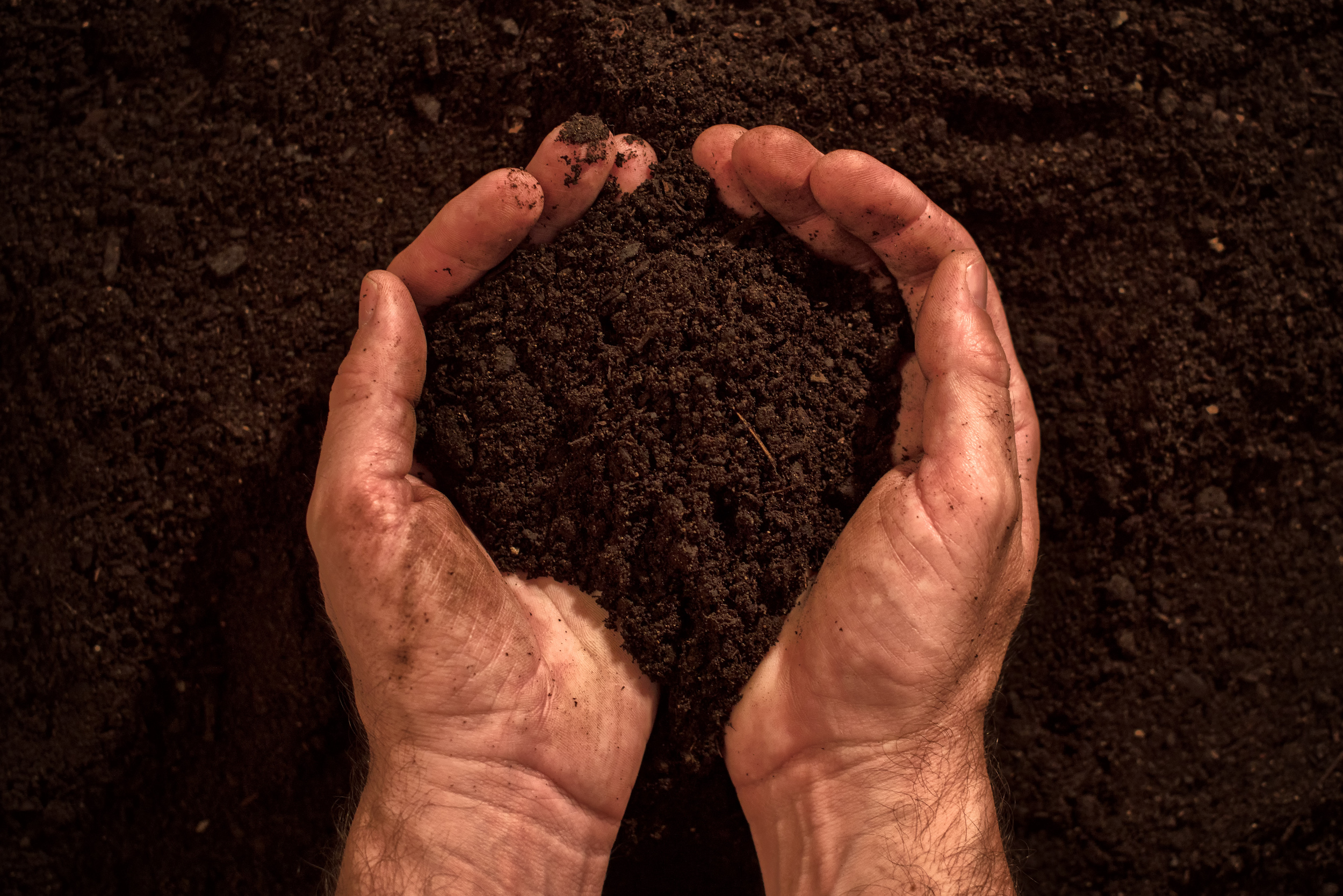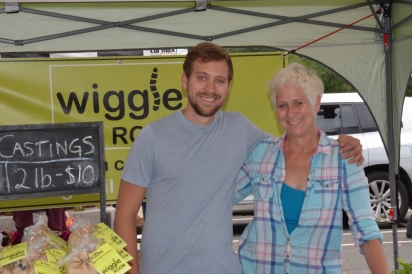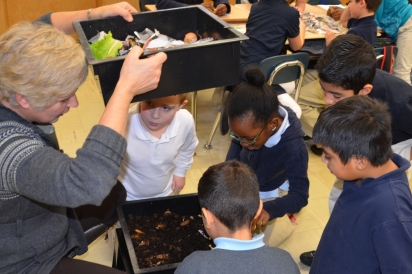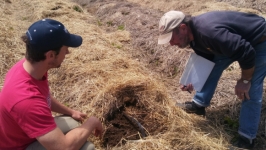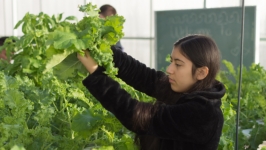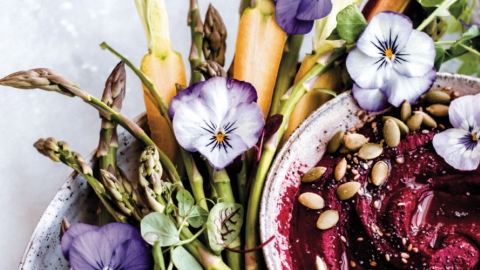Fertile Ground
Consumerism is a double-edged sword. Rising levels of consumerism have fueled incredible economic growth for our nation, but much of this has come with a price. Today, we realize, with increasing concern, that consumerism also generates an unsustainable amount of waste, which contributes to environmental destruction. One challenge we face is what to do with the millions of tons of trash that are generated annually. The 2,000 active landfills in the United States are quickly running out of space, with some states resorting to shipping garbage to neighboring states that still have capacity.
While many different types of post-consumer items contribute to the crowding of our landfills, one is conspicuous among them: food waste. According to the Environmental Protection Agency, “more food reaches landfills and incinerators than any single material in our everyday trash, constituting 22% of discarded municipal solid waste.” Besides taking up limited dumpsite space, food waste contributes to the production of methane emissions. While technological solutions exist for capturing and reusing methane, the least-complicated solution for decreasing emissions might be to simply reduce the amount of food waste entering the fills in the first place. Thankfully, Mother Nature has a highly efficient system in place to enable this: composting.
In Connecticut, a resurgence in composting is underway, and new commercial enterprises are working hard to create the necessary infrastructure to make composting as easy and accessible as recycling. Ridgefield’s Curbside Compost, founded by Nick and Erica Skeadas, is one company working to prove that diverting food waste from landfills for use as compost is not only feasible, but also successful and scalable.
Curbside Compost’s service allows households and businesses in Fairfield and Westchester County communities to have their food scraps picked up and delivered to a composting facility, where it is ultimately transformed into soil. Consumers can purchase bags of the nutrient-rich, bio-diverse soil back for $13 per quart bag. “We’re composting about 2,000 pounds per day and estimate that we have redirected over 730,000 pounds of food waste from traditional waste streams since our launch,” says Nick Skeadas. “We currently make about 300 stops a week to pick up food waste from homes, schools, offices, restaurants, and businesses.”
Collecting food waste has its challenges, most notably, how to mitigate putrefying odors that are a byproduct of storing food scraps – especially in the summer season. Curbside Compost addresses this by delivering a clean pail with every week’s pickup. A clean storage mechanism might seem an obvious component to the service, but the lack of this feature has been a limiting factor in larger municipalities, like New York City, that have tried to encourage more food waste composting but have not been able to get significant numbers of people to engage with the process.
The 2019 Town Vibe Green Awards recently recognized Curbside Compost for its environmental leadership and overall impact. “As a fairly new business, we’re thrilled and humbled to get this recognition,” says Nick Skeadas. “When you’re focused so much on the opportunity in front of you, sometimes, you forget to look back and appreciate just what has been accomplished so far."
Composting has a rich history in the United States. In 1793, John Spurrier published The Practical Farmer, which served as the New World’s compendium on agricultural best practices. In it, he speaks of various techniques and materials, including crop waste, to incorporate in soil enrichment. George Washington was highly interested in the subject, as well, and experimented with various approaches, so that he could reinvigorate the soil on his Mount Vernon farm.
Fast forward to the twentieth century, where advances in science have unearthed a new appreciation for what is actually happening beneath the topsoil. Modern insights continue to reveal how critically important healthy soil is to the environment. Elaine Ingham, an expert on soil biology and President of Oregon-based Soil Foodweb, Inc., describes the incredible diversity of organisms in soil as “the soil food web.” On average, there is an astonishing six billion microorganisms per tablespoon of healthy soil. These organisms are comprised of tiny, one-celled bacteria, algae, and fungi, as well as more complex and visible-to-the-eye organisms, such as insects, small vertebrates, and earthworms. This complex and intricate ecosystem works together to decompose organic materials into the nutrient-rich soil that is the basis for much of life on earth.
The microbiology aspects of the soil food web are the foundation for another type of composting called vermicomposting. This method uses earthworms to decompose food waste. As the worms break down organic matter, their feces, or “worm castings,” produce excellent, nutrient-rich materials with multiple benefits. In fact, research shows that worm castings have reduced levels of contaminants in soil, resulting in a higher concentration of nutrients than the organic materials contained before vermicomposting, and illustrating one way that healthy soil may remove harmful elements from the environment.
Wiggle Room is a Bridgeport-based vermicompost company that employs over 800,000 red wiggler worms to turn food scraps from local, organic restaurants into nutrient-rich food for plants. “We are focused on creating a safer and greener alternative to chemical fertilizers and pesticides,” says Monique Bosch, co-founder of Wiggle Room. “Our main product is USDA Certified Organic Worm Castings, which are a natural soil additive that contain all the nutrients and microbes plants need.”
Wiggle Room sells worm castings in bags of various sizes, up to 14 pounds. The company also produces a Vermicompost Tea (also known as “compost tea” or “worm tea”), an all-natural liquid fertilizer, applied directly to soil or plants, that is an ideal plant food. “Co-founder Justin Hawrysh has designed a fully aerated compost tea brewer that allows beneficial microorganisms to multiply exponentially, offering nutrients in a ‘plant-available’ form” says Bosch. In addition to producing and selling worm castings, Bosch is passionate about inspiring others to start their own worm composting systems. Wiggle Room designs and builds custom composting machinery for home gardeners and farmers and teaches about healthy soil, microscopy, and food growing, in addition to supporting community organizations focused on healthy food.
Creating a sustainable future is a formidable challenge, but both Skeadas and Bosch share a commitment to working toward solutions. The issues facing our environment and food system are immense and complex, which is why both founders acknowledge the primacy of community collaboration. To that end, both businesses are members of Sustainne.com, a Connecticut-based business networking and consumer portal initiative, whose mission is to unite, nurture, and grow a community dedicated to sustainable living.
Healthy soil, it appears, shares a similar need for a vibrant, collaborative ecosystem that, when in balance, works to sustain life and naturally cleanse itself of harmful impurities. Perhaps the inspiration we need to marry our consumer-driven economy with environmental stewardship and carve a sustainable path forward can be found just below our feet.
> Curbside Compost: Ridgefield, 914-646-6890
> Wiggle Room: Bridgeport, 203-858-8829


